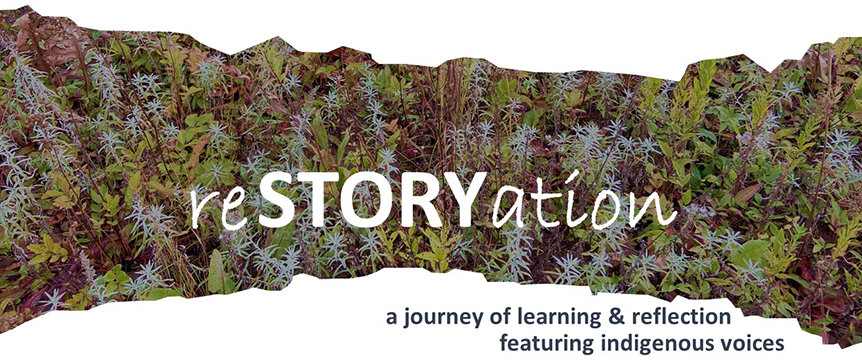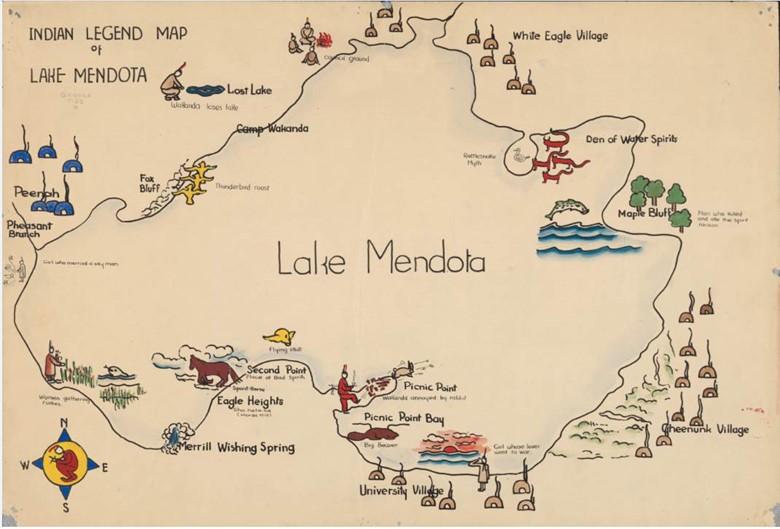
“Words and names are the ways we human build relationships”
-Robin Wall Kimmerer, Gathering Moss
In this installment of reSTORYation, we invite you to deepen your connection to the land by exploring the place names given by others who have tended and honored this place.
Phonetically spelled, Deyo-ha-waunee is the Ho-Chunk name for Lost Lake. Lake Mendota is called Wonk-sheck-ho-mikla. These names derive from Ho-Chunk oral traditions which can be further explored in the 1927 publication Lake Mendota Indian Legends. (attached)
The map below animates some of the oral tradition behind the local Ho-Chunk place names, as relayed to Charles Brown, Wisconsin state archeologist in interviews with the Ho-Chunk. Note that both the map and the 1927 booklet were produced by white people, and consider if and how that influences your interpretation.

For further exploration…
This map, created in partnership by the Ho-Chunk Nation, UW-Madison and the city of Monona shares Ho-Chunk place names for the entire four lakes area. This document also teaches us about the Ho-Chunk Creation Story, land stewardship practices and related vocabulary. http://www.mymonona.com/DocumentCenter/View/6505/FinalMap_web?bidId=
This map allows you to explore spatial extent of Indigenous territories, languages and treaties across the globe. https://native-land.ca/
Prompts for reflection…
Maps represent a particular way of viewing the world in that they tend to emphasize ownership, fixed boundaries and power. After viewing these maps, you may wish to reflect on the following considerations:
- What are the challenges associated with mapping Indigenous territories?
- What sources are used in each map? Whose stories and biases are reflected?
- How do traditions of written history and oral history differ in their impact on cultural memory?
- What place names are you familiar with that have roots in Ho-Chunk or other Indigenous languages?
And a note about language…
Language evolves over time. Examples of this can be found in some of the materials we’ve shared here. For example, the 1927 booklet and map use several terms that are better avoided today. We’ve included a couple of these dated terms below, accompanied by suggested replacements and a bit of context.
| Dated term | Replace with | Rationale |
| Winnebago | Ho-Chunk | When they became federally recognized tribe in the 1960s, the Ho-Chunk were called the Winnebago to match the language of the treaties. They changed their name to the Ho-Chunk Nation in the 1990s to reclaim their ancestral name. |
| ‘legend’ or ‘myth’ | oral tradition | Describing Indigenous spiritualty and world view as ‘legend’ or ‘myth’ can be sensitive. |

